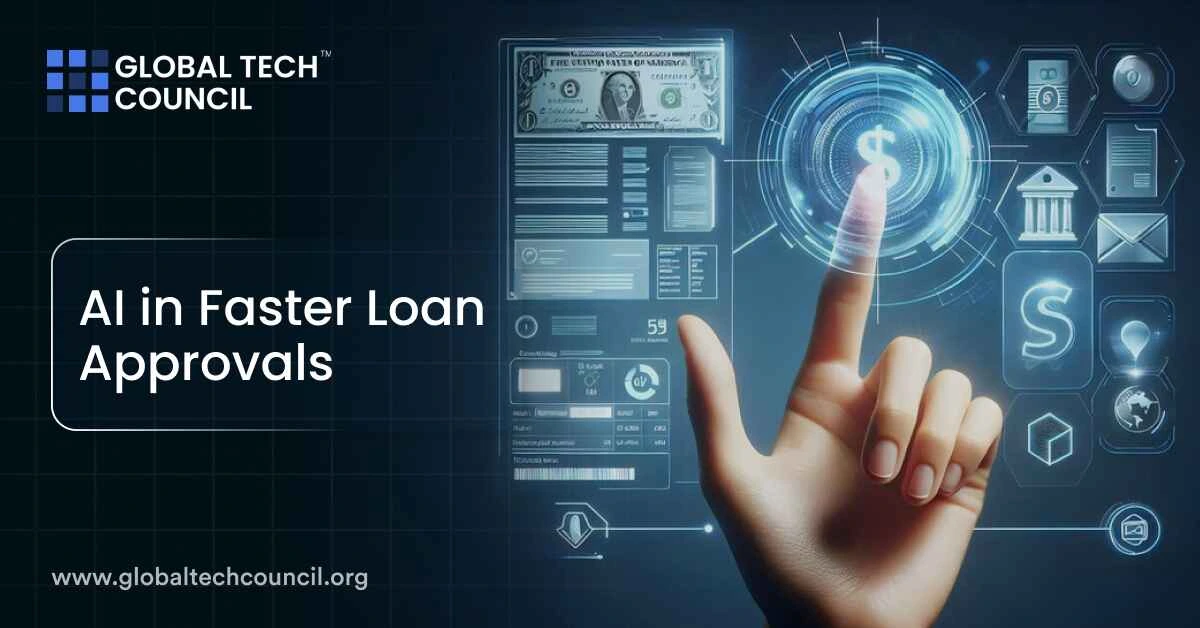
The lending world is undergoing rapid changes with the integration of artificial intelligence (AI). This technology has brought efficiency and accuracy to loan approvals, significantly cutting down errors and speeding up the entire process. Borrowers are finding it easier to access funds, and lenders can make smarter decisions faster.
How Predictive Technology Plays a Role
Predictive tools analyze data from past behaviors and current patterns to provide insights about future actions. In lending, these systems evaluate whether someone is likely to repay a loan. They process information like credit records, employment history, and spending habits. This lets lenders work faster and reduces risks, while borrowers benefit from easier approvals.
The CAIE Certified Artificial Intelligence (AI) Expert® certification equips professionals with the expertise to implement AI solutions that streamline loan processing, a growing need in today’s financial sector.
Redefining Credit Checks
Traditional methods of credit scoring rely heavily on limited data sources, like previous loans or income reports. This often leaves out those with minimal credit history. AI changes the game by using a broader set of factors, offering more people the chance to qualify for loans.
A New Way to Assess Creditworthiness
Consider Upstart, a company that uses advanced AI models to examine over a thousand variables, including education and job experience. By expanding the range of factors reviewed, they help people with less credit history secure loans while still protecting lenders from unnecessary risks. This has led to fewer missed payments compared to older systems.
Faster Loan Approvals
In the past, loan applications were processed manually, which could take weeks and leave room for errors. AI simplifies these steps by automating tasks like document checks, identity verification, and fraud detection. This means loans that once required days can now be processed in just a few hours—or even minutes.
Real Success in Practice
The Commonwealth Bank of Australia has been leading the way by automating parts of their loan process. They’ve managed to cut waiting times at call centers by nearly half while also reducing losses related to fraud. The bank’s continued investment in AI shows how they aim to keep making operations smoother.
With AI revolutionizing how banks handle loan applications, becoming a Certified Prompt Engineer™ is a strategic move for anyone looking to contribute to this transformation.
Enhancing Risk Detection
Lending always involves risk, but AI tools make it easier to manage by identifying patterns that traditional methods might miss. This allows financial institutions to address potential problems early, avoiding unnecessary losses.
Tackling Fraud With AI
AI systems are particularly skilled at spotting unusual activity. For instance, they can compare someone’s declared income with their spending habits to identify inconsistencies. This ensures loans are granted to reliable applicants and keeps fraud in check.
Improving the Borrower Experience
AI isn’t just a behind-the-scenes helper—it’s also changing how lenders interact with borrowers. Chatbots and other virtual tools now guide users through applications, answer questions, and suggest loan options based on personal needs. This makes borrowing more user-friendly and builds trust.
Practical Applications
For example, Lloyds Bank uses AI-powered customer support tools that provide instant responses. These systems help users avoid long calls to service lines. Lloyds is also using AI for mortgage applications, making the process faster and simpler.
Professionals aiming to develop AI tools that enhance loan approval systems can benefit greatly from the Certified Artificial Intelligence (AI) Developer® credential.
Addressing Fairness Concerns
While AI has transformed lending, fairness remains a challenge. If the data used to train AI systems includes past biases, those biases may be carried forward. For example, discriminatory practices in older lending systems could affect AI’s decision-making.
Steps to Remove Bias
To address this, organizations like Atalaya Capital Management focus on using high-quality, diverse data. They regularly review outcomes to spot any signs of unfairness and make necessary changes. Regulators are also developing rules to ensure responsible use of AI in the lending industry.
What’s Next for AI in Lending
AI continues to reshape lending, and some trends are worth keeping an eye on:
- Predicting Borrower Needs: Financial institutions are starting to offer loans proactively by anticipating when a customer might need funds.
- Instant Document Verification: AI tools can verify application documents in seconds, further reducing waiting times.
- Expanding Access to Credit: By analyzing unconventional data, AI can make loans available to underserved populations, fostering greater financial inclusion.
Benefits for Everyone
Borrowers experience:
- Faster loan approvals.
- Easier access for those without much credit history.
- Clearer communication and transparency during the process.
Lenders enjoy:
- Lower risks thanks to improved evaluations.
- Streamlined operations through automation.
- More satisfied customers who are likely to return.
Challenges to Overcome
Despite its benefits, AI still faces hurdles in lending. Protecting sensitive data is critical to maintaining trust. Additionally, bias within AI systems must be carefully monitored and corrected to ensure fairness for all.
Finding the Right Balance
To maximize the benefits of AI, financial institutions must combine technological advancements with ethical practices. Transparent operations, varied data sources, and compliance with regulations will help build trust and fairness in the lending process.
Final Thoughts
AI has revolutionized how loans are processed, making the system faster, more inclusive, and less prone to mistakes. Borrowers get smoother experiences and quicker decisions, while lenders benefit from improved efficiency and fewer risks. However, as this technology continues to evolve, it’s essential to address challenges like privacy concerns and bias to ensure it’s used responsibly. When applied thoughtfully, AI has the power to create a fairer, more efficient financial system for everyone.

